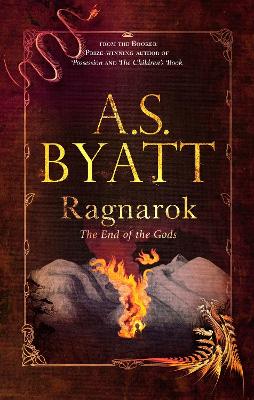Reviewed by brokentune on
Ragnarok was really short but it was very much the opposite to Nesbo’s Macbeth (which I had read right before this), and thus perhaps exactly what I needed.
I only realised it when I started the book, but Byatt wrote the book as part of the Canongate Myths series, i.e. a retelling of a myth – so very much another similarity to Macbeth which was the retelling of a Shakespeare play as part of the Hogarth series.
Where Macbeth discouraged me from looking deeper into the retelling (because it made little sense at the heart of it), Ragnarok was a slow-burning revelation of subtleties that seemed to end in the discovery that the story was not just about the end of the world that the main character, the “thin child”, lived through when she sought to escape into Norse mythology. It was also the description of another layer of destruction that lurked or rather lurks beyond the short term vision of the stories setting.
Much like Ragnarok, once things are set in motion, it is not known whether they can be stopped.
I rather liked this. I do realise, however, that Byatt’s writing – ornate and flowery – is not something I can read a lot of.
Reading updates
- Started reading
- 3 September, 2020: Finished reading
- 3 September, 2020: Reviewed
